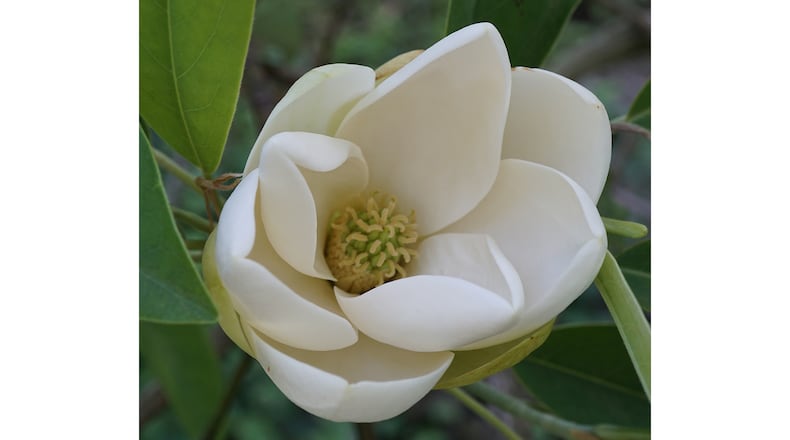In August 1916, the Georgia Legislature proclaimed in a joint resolution that a showy white flower, the Cherokee rose, would be the official state flower of Georgia. The legislators claimed that the Cherokee rose was a Georgia native plant and deserved being the state’s official “floral emblem.”
But the legislators were wrong. Botanists later discovered that the Cherokee rose is not a true Georgia native but instead is an indigenous species of southern China. The rose, it is believed, originally was brought to America during the Colonial era and cultivated by settlers and Cherokee people, who became very fond of the flower.
The flower, in fact, came to represent the forcible removal of the Cherokee from Georgia in 1838 during the infamous “Trail of Tears.” The white petals are said to represent the Cherokee clans; the yellow center represents the gold for which the land was stolen.
Over the ensuing decades, however, the Cherokee rose, a woody, high-climbing shrub, escaped to the wild and is now widespread across Georgia’s landscape. So prolific has been its spread that state botanists now consider it a serious invasive species that imperils native plants.
For those reasons and others, the Georgia Native Plant Society is waging a campaign to replace the Cherokee rose as the state flower with a true Georgia native species, the flower of the sweetbay magnolia (Magnolia virginiana). The sweetbay, a medium-size evergreen tree, is found across Georgia and produces fragrant, eye-catching, creamy-white flowers.
The sweetbay, the society says, is also beneficial to native wildlife. In particular, it is an important “host plant” for the caterpillars of the Eastern tiger swallowtail butterfly, the state’s official butterfly.
A bill (Senate Bill 518) to make the sweetbay magnolia Georgia’s official state flower has cleared a key Senate committee in Georgia’s General Assembly, but whether the idea will make it all the way through the process is uncertain.
“Georgia should promote a native plant species,” said Sen. Rick Williams, R-Milledgeville, who introduced the bill.
IN THE SKY: From David Dundee, Tellus Science Museum astronomer: The moon will be last quarter on Sunday. Venus and Mars are very low in the east just before sunrise. Jupiter is in the west at sunset. Mercury and Saturn are not easily seen right now.
Charles Seabrook can be reached at charles.seabrook@yahoo.com.
About the Author
Keep Reading
The Latest
Featured

